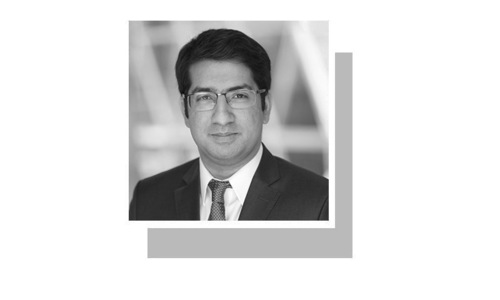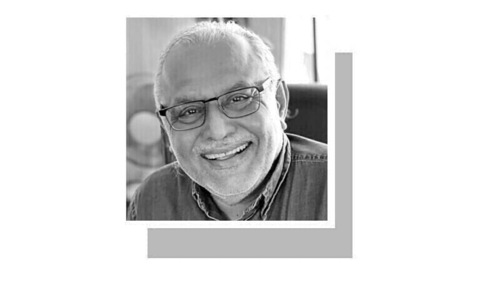KABUL: Afghan forces took control of security across the country on Tuesday, marking a major milestone as US-led combat troops prepare to withdraw after 12 years of fighting the Taliban.
Speaking at a military academy outside Kabul, President Hamid Karzai said the police and army were ready to take on insurgents, but a bomb in the city underlined persistent instability.
Three civilians were killed in the attack, which targeted a prominent lawmaker as his convoy travelled to parliament just before the handover ceremony began.
“Our security and defence forces will now be in the lead,” Karzai told Afghan and Nato officials at the event, the timing and location of which had been kept secret due to fears of a militant attack.
“From here, all security responsibility and all security leadership will be taken by our brave forces,” he said. “When people see security has been transferred to Afghans, they support the army and police more than before.”
Doubts remain over the ability of Afghan forces to thwart the Taliban, and the Nato military coalition will retain an important function in logistics and air support as well as in combat emergencies.
But Nato chief Anders Fogh Rasmussen said that by taking the lead in security on Tuesday, Afghan forces were completing a five-stage transition process that began in March 2011.
“They are doing so with remarkable resolve,” he said. “Ten years ago, there were no Afghan national security forces... now you have 350,000 Afghan troops and police, a formidable force,” he said.
“We will continue to help Afghan troops in operations if needed, but we will no longer plan, execute or lead those operations, and by the end of 2014 our combat mission will be completed.”The handover of the last 95 districts from Nato to Afghan control includes areas in the south and east where the Taliban have concentrated their bloody insurgency since 2001.
As Afghan soldiers and police take over the fight against the militants, who were ousted from power after the 9/11 attacks, the 100,000 Nato troops will focus on training and mentoring roles.
But recent attacks have demonstrated the Taliban's ability to strike at Kabul as the country prepares for presidential elections next year and the Nato withdrawal by the end of 2014.
Haji Mohammad Mohaqiq, a leader of the ethnic Hazara minority who is likely to play a key role in April's presidential vote, was unhurt in Tuesday's bomb attack but his clothes were burnt.
“Four of my guards are wounded and are in hospital,” he told AFP. “I was going to the parliament and it was near the office of the Independent Human Rights Commission.
“I heard a big explosion on the side of the car. Only my cloak is a little burned, other than that I'm fine.” The lawmaker said that he had been threatened. “The intelligence agency was sending letters that I should be careful. There was a threat against me. I was rarely going to the parliament.”
Mohammad Zahir, the police investigations chief in Kabul, told reporters at the scene that three civilians were killed and 24 others, including some guards, were wounded when the improvised explosive device detonated.
On Tuesday last week, a suicide car bomb killed 15 civilians outside the Supreme Court in Kabul. The previous day, gunmen fired grenades at the city airport and an international aid group's compound was targeted in a seven-hour battle late last month.
Despite the attacks penetrating the capital's defences, the effective response of elite Afghan security forces has been widely hailed as a sign of increasing professionalism.
Karzai used his speech to exhort the army to avoid civilian casualties, an issue that has often triggered anger aimed at Nato forces, and he stressed that foreign air strikes should not be called in when fighting the insurgents.
“Under no circumstances can Afghan civilians be hurt and/or the air force be used in our villages and residential areas – only in medical evacuations,” he said.
Doubts over the Afghan forces' capacity have been fuelled by high rates of desertion and fears for the future of foreign aid post-2014.
On Friday, the US commander of the Nato mission in Afghanistan warned that gains secured over the last 12 years would be lost if donor nations cut back support after the foreign withdrawal.
“We are not where we need to be yet,” US General Joseph Dunford told foreign journalists. “The continued presence of the international community politically, in development and in security is necessary to sustain the progress that we have made.”














































